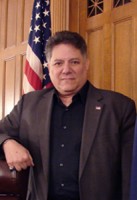Oliverio Says Putnam Valley’s Revised Noise Law Will Be ‘Very Fair’

Putnam Valley Supervisor Sam Oliverio suggested the community will be pleased with a revised version of the towns noise ordinance but didn’t offer any details as officials tweak the language in the proposal.
After scrapping the original plan earlier this month following public uproar, Oliverio indicated the process would move swiftly to get the new proposal crafted, introduced, reviewed, and adopted by March. But last week no updates had been offered on the modifications other than it being a “very fair” document.
“We are working on it and counsel is reviewing it a little bit more to tighten up the language,” Oliverio said at the Feb. 17 Town Board meeting. “It’s much different from what we offered before and when you see it, I do not think there’ll be anybody who will say that this is treading on areas that we shouldn’t. I think it’s very fair.”
Following public outcry over the proposed decibel limit and amendments in the original proposal, officials on Feb. 3 voted down the plan and opted to start over. The decision came after residents pressed the board during a public hearing that their efforts to regulate daytime noise would violate their rights and limit their activities.
Officials have been striving to amend the existing ordinance after the town received numerous complaints last year of neighbors being disruptive and blasting music for hours at a time.
The towns noise law doesn’t address daytime sound and fails to place a penalty on those who violate the code. Furthermore, the ordinance doesn’t have a decibel limit, which has restricted law enforcement officers and deputies from effectively enforcing the law, officials have said.
A decibel is how sound is measured.
The previous proposal sought to set the decibel limit at 65 between 8 a.m. to 6 p.m. within any residentially zoned district, and at 55 decibels between 6 p.m. and 8 a.m.
Commercially zoned areas would have been subject to maintaining sound up to 65 decibels.
While the proposal was in line with neighboring municipalities, such as Carmel, many residents and some board members argued that 65 decibels (dBs) was too low and would restrict homeowners from engaging in common housekeeping activities, like mowing the lawn or cutting down a tree, another recreational uses.
For comparison, normal breathing is measured at about 10 dBs, with regular conversation measured up to 65. A vacuum cleaner is categorized at an estimated 70 dBs, general traffic sounds is 80 dBs, and a lawnmower is measured between 85 and 90.
An outline of the new proposal, which was presented during the Feb. 3 meeting, states that between 7 a.m. and 8 p.m., prolonged noise levels of 70 decibels or more lasting longer than 15 minutes would be prohibited.
The ordinance would apply to revving cars, loud music, artificially amplified voices, or artificially amplified sound producing devices, the proposal states.
Additionally, noise levels exceeding 60 decibels for more than 15 minutes between 8 p.m. and 7 a.m. would be prohibited.
While the remainder of the noise ordinance would remain intact, daytime exemptions to the law would include ongoing construction, yard maintenance, yard and construction mechanisms and tools, air conditioners, generators, snow-blowers, hand tools, chain saws, land and or watercraft that are not stationary, and one-day celebratory events, such as birthday parties.
Furthermore, evening exemptions would consist of air conditioners, generators, all moving land vehicles, tools needed during a weather or national emergency and one-day celebratory events which must end by midnight.
The municipality and utilities would also be excused from all restrictions if it involves necessary maintenance, repairs, and any emergency response during a weather event or national emergency.
Violators would be subject to a fine of up to $500 for each offense, imprisonment of up to 15 days, or both. The town would also be authorized to seek injunctive relief to prevent the continued violation.
Oliverio said another public hearing will be scheduled once the board has completed a final draft of the latest proposal. He has previously said he wants to see something approved by March, explaining that noise hits its peak volume in the spring.
“Once we get it finalized, we will introduce it to the public, have another public hearing on it and hopefully pass it,” Oliverio said.
